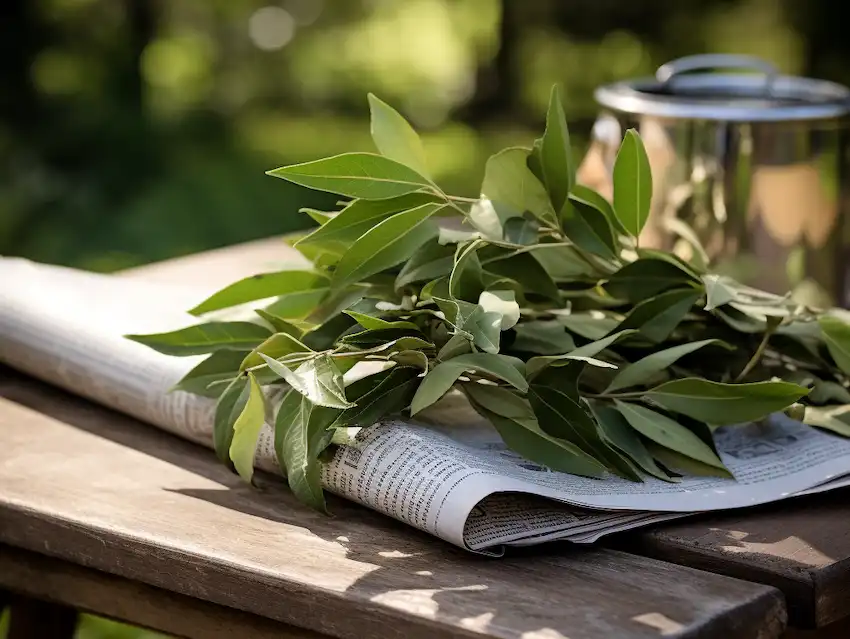
Growing sturdy and healthy seedlings is a cornerstone of successful gardening, whether you’re growing peppers, tomatoes, cucumbers, or other plants. The secret to achieving this goal lies not only in careful planting, but also in how you prepare and enrich the soil. By incorporating simple, natural additives into your soil, you can create an environment that promotes vigorous growth and resilience in your young plants. This way, you’ll nourish your soil with elements that will bring out the best in your seedlings.
The power of bay leaves and onion skins
Bay leaves : A treasure trove of nutrients
Start by improving your soil with bay leaves. Packed with vitamins B and C, bay leaves are more than just a culinary delight. They are a boon to your plants. These leaves are also rich in essential minerals like phosphorus, magnesium, calcium and iron, not to mention organic acids and tannins that are beneficial for soil health. To use bay leaves in your soil, simply add 1 teaspoon of ground bay leaves per gallon of soil. This amendment will provide your soil with nutrients that promote healthy plant growth.
Onion skins : microelement miracle
Don’t overlook the potential of onion skins. These kitchen scraps are a free and effective way to provide your plants with microelements that are important for the development of strong roots and sturdy stems. Add 1 tablespoon of crushed onion skins per liter of soil to strengthen your seedlings from the start.
Planting and soil preparation
Before planting your seeds, make sure the soil is sufficiently moistened. A solution of succinic acid, where 1 tablet is dissolved in a liter of water, can do wonders. This acid is a powerhouse that energizes soil organisms and plants alike. It promotes growth, boosts immunity, and improves the plants’ ability to adapt to new environments. After mixing thoroughly, use this solution to moisten your soil, then plant your seeds in separate containers to give them the individual space they need to thrive.
Accelerate germination and promote growth
To make the seedlings strong and resilient, consider the following additional methods:
- Tangerine Peel Additive : Dried and ground tangerine peel can make your soil more absorbent and aerated, which is vital for root development and overall plant health. By adding 1-2 tablespoons per gallon of soil, you’ll not only improve soil texture; you’ll also provide a slow-release nutrient source that will aid growth and increase your yield.
- Rice flour and turmeric : A mixture of rice flour and some turmeric powder can help your seedlings significantly. Rice flour, rich in nitrogen, phosphorus, potassium and other trace elements, nourishes the plants while turmeric helps protect them with its antibacterial and antiviral properties. Add 1 teaspoon of rice flour and a pinch of turmeric to the soil before planting to ensure your seedlings grow healthy and strong.
Liquid fertilizer for established seedlings
Once your seedlings have formed their first true leaves, a homemade liquid fertilizer can provide an extra boost. Mix a heaped teaspoon of rice flour and a teaspoon of turmeric in 1 liter of hot water (70-80 degrees Celsius). Let it steep for several hours. This nutrient-rich solution can be applied to the seedlings at the root to encourage further growth. A second application after two weeks can significantly help tomatoes, peppers, cucumbers and other plants.

By incorporating these simple, natural additives into your gardening, you can greatly improve the growth, health and resilience of your seedlings. These methods are not only effective, but also sustainable, offering the opportunity to use common kitchen scraps and natural ingredients. Remember, the foundation of a healthy plant lies in the care and preparation you put in at the early stages. Happy gardening!
Inspired by this? Share the article with your friends!
